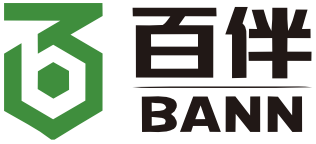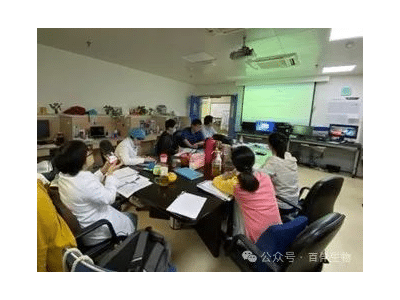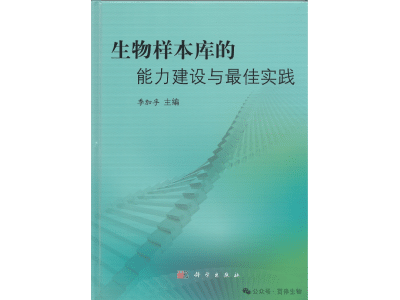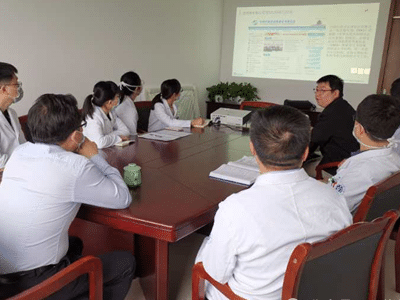In December 2023, the Biological Sample Bank of Zhejiang Cancer Hospital officially obtained the Certificate of Biological Sample Bank Accreditation (BB0015) issued by the China National Accreditation Service for Conformity Assessment (CNAS), becoming the 15th accredited biospecimen bank organization, and the second biospecimen bank in Zhejiang to obtain this accreditation.
In the traditional way, the codes are usually marked on the side walls. Because the containers are obscured from each other, this method can only read the container codes one by one. By placing pre-made codes on the bottom of the containers, the obstruction can be avoided and up to 96 containers can be decoded at the same time using a batch decoding device. In addition, the batch decoder also analyzes the location of the containers and integrates the code and location into a standard data file.
Hangzhou Biobank Biotechnology Co., Ltd. provided complete accreditation consulting services for the accreditation of the biospecimen bank of Zhejiang Cancer Hospital.
BANN’s accreditation consultant team has been involved from the beginning of the accreditation program, firstly, they have a complete understanding of the actual operation of the hospital’s biospecimens, conducted a one-week accreditation standard publicity and training for the leadership and staff of the biospecimen repository, and worked with the biospecimen repository to formulate the accreditation program.
Subsequently, the Biobank’s accreditation consultant team assisted the Biobank to start the trial operation of the system, adopting the “one-on-one” coaching mode to follow up and review all aspects of the Biobank’s operation and to check the gaps and make up for the deficiencies. Despite the impact of the epidemic, the consultant team still successfully completed all the work during the one-year trial operation stage, and helped the biobank to continuously improve the quality management system and complete the assessment, so that the biobank entered the formal accreditation application stage at the end of 2022. Finally, the biobank was successfully accredited in 2023.
In September 2023, the Biological Sample Bank of Zhejiang Cancer Hospital ushered in the on-site evaluation for accreditation. During the three-day on-site inspection, the accreditation experts conducted a full-element review and inspection of the quality and capability of the sample bank construction based on CNAS accreditation guidelines. By means of quality document system audit, on-site inspection, personnel competence assessment, comparison experiment, on-site Q&A, the four experts had full communication with the personnel of the sample bank, and carried out a serious and detailed evaluation and put forward valuable opinions and suggestions for the whole process of sample reception, preparation, storage and distribution, as well as the whole elements of man, machine, material, method and environment, etc., and made an in-depth audit on the operation of the quality system of the sample bank and the technical competence. The quality system operation and technical capability of the biosample bank were reviewed in depth. At the last meeting of the on-site evaluation, Prof. Chen Qubo, the head of the evaluation team, declared that the quality management system and safeguard ability of the biospecimen bank of Zhejiang Cancer Hospital meets the requirements of CNAS “Guidelines for Accreditation of Biospecimen Banks for Quality and Competence”, and the on-site evaluation session was passed successfully.
This accreditation has enhanced the awareness of all the staff of the biosample bank of Zhejiang Cancer Hospital on the construction of quality system, and also marked the continuous and effective operation of the quality management system of the biosample bank of Zhejiang Cancer Hospital. At the same time, it promotes the standardization of biological samples preservation, collection and sharing, provides important guidance for the comprehensive optimization of resource sharing services, and is an important manifestation of the establishment and application of quality management system for high-quality clinical biological samples and standardization of technical and service capabilities. Zhejiang Cancer Hospital Biological Sample Bank will continue to improve the level of quality management and technical service, further form a standardized, standardized, informationized, featured boutique and shareable biological sample research and support system, and strive to provide a standardized technical platform and diversified resource support for the hospital’s various clinical and translational medical researches; and at the same time, as the hospital’s three-in-one scientific research service of “Basic, Clinical and Translational”, it will provide a comprehensive and comprehensive service to optimize the resource sharing. At the same time, as one of the core components of the hospital’s “basic, clinical and translational” three-in-one scientific research service platform, it will work together with various research platforms to help the hospital’s innovative and high-quality development of clinical research and translational medicine.
The consulting team of Biobanking is composed of several experts who have been engaged in the foundation and quality management of the sample bank field for the earliest time in China, participated in the national project of biosample bank and formulated a number of standards related to the field of biosample bank, and authored the earliest monograph on quality management of biosample bank in China, “Capacity Building and Best Practices of Biological Specimen Banks” (published by Science Publishing House in 2013).








